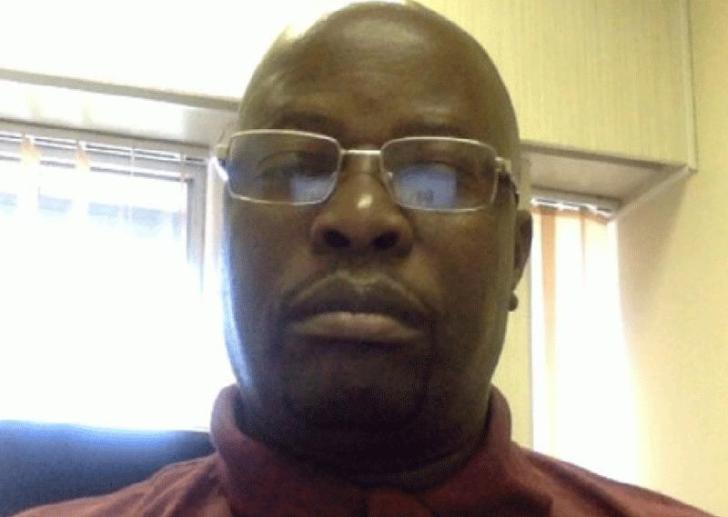News / National
Ndebeles in Zimbabwe outrage over 'offensive' new school textbook
09 Feb 2025 at 19:56hrs |
18 Views

The introduction of a compulsory Heritage Studies subject in Zimbabwean schools has ignited a wave of discontent among stakeholders in Matabeleland, who have criticized the curriculum for marginalizing certain languages and cultures.
Many cultural concepts and traditions in a Form 4 textbook are predominantly presented in Shona, with some misrepresented and others absent from the context of Matabeleland's diverse communities. For instance, the Shona term kurova guva is inaccurately translated as umbuyiso in Ndebele, despite the two traditions being vastly different in meaning and practice.
Thembelani Dube, deputy chairperson of the Rural Communities Empowerment Trust (RuCET), expressed concern over the curriculum's approach.
"Heritage cannot be separated from culture and language," Dube said.
"No one has the right to impose their culture on a society with its own heritage passed down through generations. Heritage studies should promote local cultures, not act as a colonial tool to suppress others in the name of education."
Samukele Hadebe, academic and leader of Freedom Alliance, called for the immediate withdrawal of the textbook, citing its failure to represent the multicultural and multilingual nature of Zimbabwe.
"We warned against the promotion of monolingualism and monoculturalism in a diverse society, but our warnings were ignored," Hadebe said.
"This textbook fosters ethnic chauvinism and undermines the development of other cultures, allowing one language and worldview to dominate while others are sidelined. It's reminiscent of the arrogance we saw with Afrikaans during Apartheid."
Mbuso Fuzwayo, secretary-general of Ibhetshu LikaZulu, accused the curriculum of deliberately distorting cultural and linguistic heritage. "This is a calculated effort to erase and distort other communities' cultures and traditions," he alleged.
Retired educationist Benny Moyo also criticized the curriculum, highlighting its divisive nature.
"An education system should unite and build a nation, but this curriculum alienates and trivializes other languages and cultures," Moyo said.
"It is not only insensitive but criminal, as it fosters division rather than cultivating national consciousness and patriotism."
Nhlanhla Moses Ncube, speaker of the Nkayi Community Parliament, echoed similar sentiments, adding his voice to the growing calls for reform.
The backlash highlights ongoing concerns about cultural representation in Zimbabwe's education system. Critics argue that if left unaddressed, the curriculum risks deepening existing divisions in a nation striving for unity and inclusivity.
Many cultural concepts and traditions in a Form 4 textbook are predominantly presented in Shona, with some misrepresented and others absent from the context of Matabeleland's diverse communities. For instance, the Shona term kurova guva is inaccurately translated as umbuyiso in Ndebele, despite the two traditions being vastly different in meaning and practice.
Thembelani Dube, deputy chairperson of the Rural Communities Empowerment Trust (RuCET), expressed concern over the curriculum's approach.
"Heritage cannot be separated from culture and language," Dube said.
"No one has the right to impose their culture on a society with its own heritage passed down through generations. Heritage studies should promote local cultures, not act as a colonial tool to suppress others in the name of education."
Samukele Hadebe, academic and leader of Freedom Alliance, called for the immediate withdrawal of the textbook, citing its failure to represent the multicultural and multilingual nature of Zimbabwe.
"We warned against the promotion of monolingualism and monoculturalism in a diverse society, but our warnings were ignored," Hadebe said.
Mbuso Fuzwayo, secretary-general of Ibhetshu LikaZulu, accused the curriculum of deliberately distorting cultural and linguistic heritage. "This is a calculated effort to erase and distort other communities' cultures and traditions," he alleged.
Retired educationist Benny Moyo also criticized the curriculum, highlighting its divisive nature.
"An education system should unite and build a nation, but this curriculum alienates and trivializes other languages and cultures," Moyo said.
"It is not only insensitive but criminal, as it fosters division rather than cultivating national consciousness and patriotism."
Nhlanhla Moses Ncube, speaker of the Nkayi Community Parliament, echoed similar sentiments, adding his voice to the growing calls for reform.
The backlash highlights ongoing concerns about cultural representation in Zimbabwe's education system. Critics argue that if left unaddressed, the curriculum risks deepening existing divisions in a nation striving for unity and inclusivity.
Source - southerneye
Join the discussion
Loading comments…










































